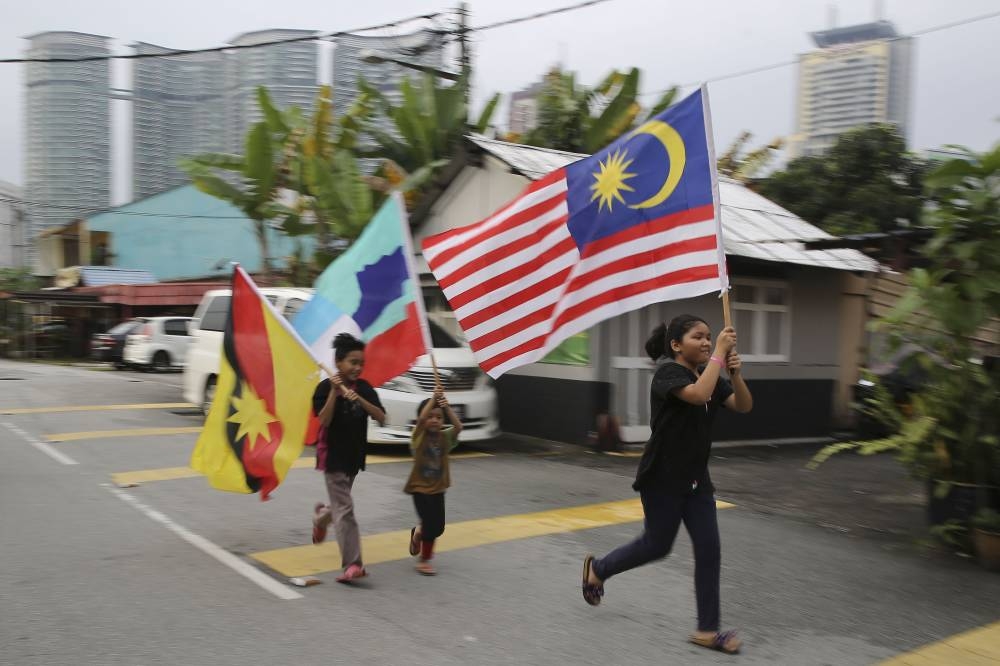JAN 17 — A Sarawak pro-autonomy advocate has called on Sarawak Premier Tan Sri Abang Johari Openg to propose the term constituent province, instead of region, for Sarawak in his coming meeting with Prime Minister Datuk Seri Anwar Ibrahim.
According to Peter John Jaban, it would reflect the political aspirations of the Sarawakians for greater autonomy.
He added that the term constituent province, either in Malay, English or French and other international languages, would convey an appropriate status for Sarawak.
“It is used, for example, in the Province of Quebec in Canada or the Province of Aceh in Indonesia, both of which have autonomy over various matters including language, economy, taxation, education and even resource rights.
“Moreover, it is not a term currently in use within the Malaysian Constitution,” Jaban said when asked to respond to the on-going debate especially on social media on the proposal to change the status of Sarawak and Sabah from states to regions.
The region status for Sarawak and Sabah was recently raised by Deputy Prime Minister Datuk Seri Ahmad Zahid Hamidi while delivering his presidential speech at the Umno general assembly on January 13.
He had said Sabah and Sarawak had been accorded the status of regions and were no longer regarded as states within Malaysia.
With the greatest of respect, Sabah and Sarawak are states in Malaysia, not regions or provinces.
Malaysia is the name of the Federation pursuant to “an agreement relating to Malaysia” which came into force on September 16, 1963. The agreement is an international agreement popularly referred to as MA63.
It was registered by Great Britain and Northern Ireland, the first parties to MA63, in the United Nations on September 21, 1970, with registration number of 10760. It is accessible here.
Article I of MA63 states as follows:
The Colonies of North Borneo (Sabah) and Sarawak and the State of Singapore shall be federated with the existing States of the Federation of Malaya as the States of Sabah, Sarawak and Singapore in accordance with the constitutional instruments annexed to this Agreement and the Federation shall thereafter be called “Malaysia.”
Article II states as follow:
The Government of the Federation of Malaya will take such steps as may be appropriate and available to them to secure the enactment by the Parliament of the Federation of Malaya of an Act in the form set out in Annex A to this Agreement and that it is brought into operation on [16th September 1963 (and the date on which the said Act is brought into operation is hereinafter referred to as “Malaysia Day”).
The second party to MA63, the Federation of Malaya had indeed given effect to MA63 by its Parliament passing the Malaysia Act 1963. The Federal Constitution on September 16, 1963 had incorporated the terms of MA63.
Article 1(2) of the Federal Constitution in 1963 was pursuant to Article II of MA63 and, importantly as well, in the form as set out in Annex A of MA63, namely:
The States of the Federation shall be —
(a) the States of Malaya, namely, Johore, Kedah, Kelantan, Malacca, Negri Sembilan, Pahang, Penang, Perak, Perlis, Selangor and Trengganu; and
(b) the Borneo States, namely, Sabah and Sarawak; and
(c) the State of Singapore. [Article 4(2) of Annex A]
Clearly from the above, Sabah and Sarawak are the Borneo States federated with the States of Malaya.

Jaban, who is also the information chief of the Sarawak Association of People’s Aspiration (SAPA) civil society, said that a term is needed to distinguish Sabah and Sarawak from the Federated States of Malaya.
However, that term cannot be provinces when the MA63 itself refers to them as the Borneo States.
What needs to be done is to restore Article 1(2) of the Federal Constitution to its 1963 wordings – that is:
The States of the Federation shall be —
(a) the States of Malaya, namely, Johore, Kedah, Kelantan, Malacca, Negeri Sembilan, Pahang, Penang, Perak, Perlis, Selangor and Terengganu; and
(b) the Borneo States, namely, Sabah and Sarawak.
Sabah and Sarawak are States in the Federation of Malaysia, distinguished from the States of Malaya.
*This is the personal opinion of the writer or publication and does not necessarily represent the views of Malay Mail.





















